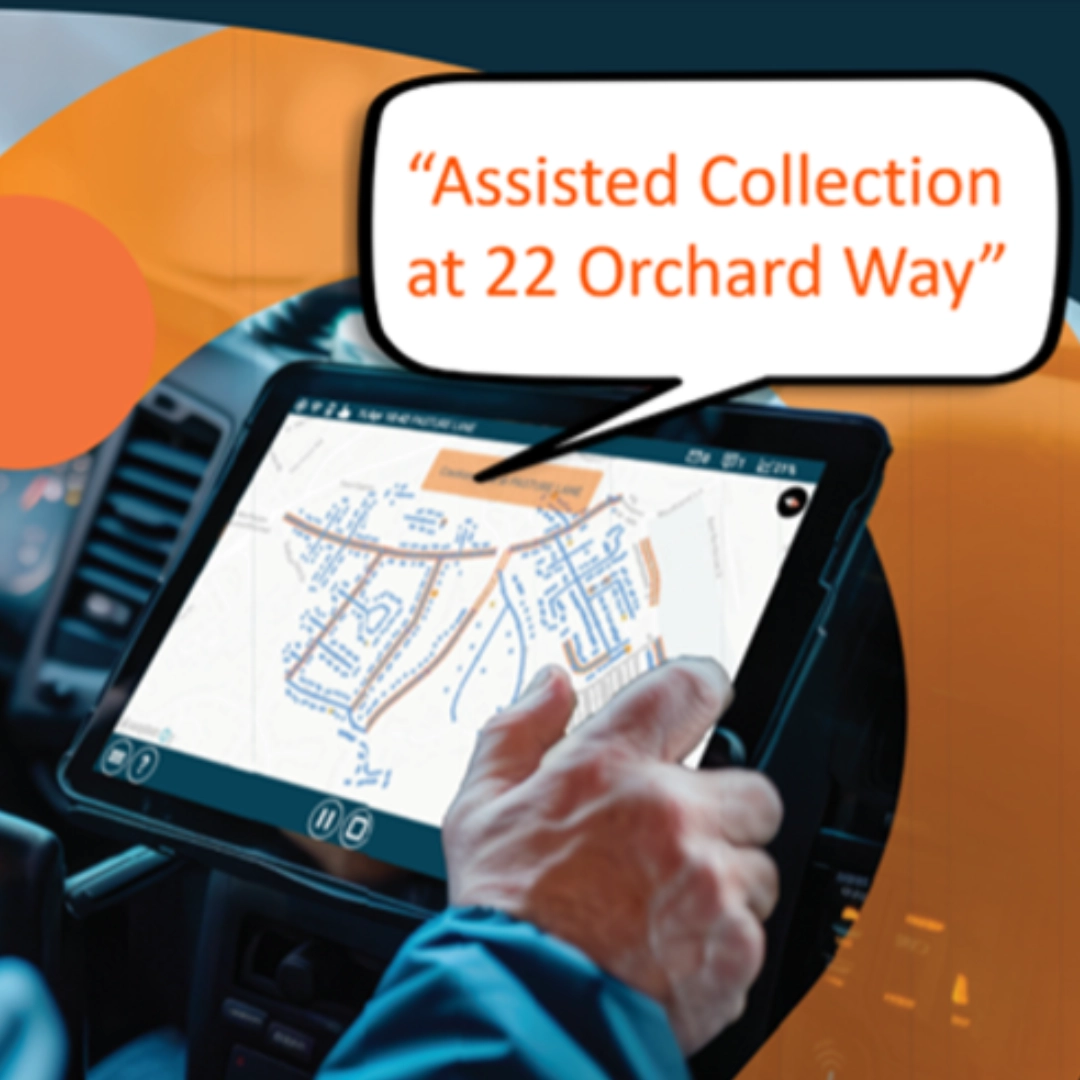Lets work together



Suite 3A, Chapel Allerton House, 114 Harrogate Road, Leeds, LS7 4NY
ukinfo@integrated-skills.com
+44 (0) 3300 888 670

Due to the diverse and ever-aging population, UK Local Authorities are facing increasing challenges to adapt their public services to meet changing needs.
One such area of growing importance is Assisted Bin Collections. These are waste collection services designed to support residents who are unable to move their bins to the kerbside for regular collection (often due to age, disability, or health conditions).
With more than 9.7 million people aged 70 and over in the UK, and this number expected to rise to 13.7 million by 2032, the demand for Assisted Collections is only going to increase. For councils, this means more planning, more operational oversight, and smarter tools to ensure residents are served with dignity and efficiency.
What Are Assisted Collections?
Assisted Collections go by many names depending on the region: “Help to Collect” in parts of England, “Assisted Lift” in Scotland, and “Collection Support Service” in some Northern Ireland authorities. The principle is the same: the waste service provider collects bins directly from a resident’s property rather than expecting the bin to be placed at kerbside.
To access the service, residents must apply – typically through a council-run application or assessment process. Criteria may be strict in some areas or more relaxed in others, but all councils must maintain a list of properties eligible for assisted support.
This list must be updated regularly and shared across departments and service providers to ensure a reliable service – no easy task.

Legislative Context and Policy Guidance
According to UK Government waste collection guidance, councils have a duty to provide suitable waste collection support to residents who need it. While Assisted Collections are not explicitly required by law, they must provide “reasonable” services to all households under the Environmental Protection Act 1990, and “reasonable adjustments” under UK equality laws.
Generally, councils offer the service to residents who are physically unable to move their bins to kerbside and have no adults living with them that can assist. As it’s a discretionary service, an application process is usually involved which may include eligibility checks and proof of medical needs. Once assessed and accepted on to the list, the council will agree a suitable collection point – usually an on-property location.
Some local authorities such as Doncaster Council have published detailed policies outlining how residents can qualify, the responsibilities of the council, and how services will be reviewed to prevent abuse or over-subscription.
Operational Realities and the Cost of Getting it Wrong
Assisted Collections have a direct impact on route planning, driver workload, and service delivery times. Unlike standard bin collections, which are optimised for kerbside efficiency, Assisted Collections require crews to leave the vehicle, enter properties or communal areas, and collect bins manually.
This adds valuable time to the schedule – especially in neighbourhoods with a high concentration of elderly or mobility-impaired residents. If this additional time is not properly factored into route planning, it can cause rounds to fall behind schedule. Crews may miss key performance indicators (KPIs), resulting in increased customer complaints.
An unpublished survey by Integrated Skills found that 60-70% of missed bin complaints received by Waste Management Departments were for Assisted Collections. Missed collections are not just an inconvenience. They require councils to send crews out again (often with short notice), adding to the workload and fuel costs while risking penalties for missed KPIs.
In most cases, these errors are not caused by neglect or human error, but by a lack of visibility for drivers – especially those new to a round or working on an agency basis. Because the Assisted Collection property does not present its bin on the street, new drivers, or agency drivers, can drive past an assisted collection property and not realise until the Council receives a formal complaint.
Stuart Henshaw, Business Development Director at Integrated Skills (who managed local authority waste services for 15 years), believes this simply shouldn’t happen: “The Council already holds the Assisted Collection list, it’s just not being made available to the right person at the right time. Returning for missed bins is time-consuming and expensive and let’s down vulnerable residents – eroding trust in local authorities.”

The Solution: Integrated Skills’ SmartSuite
Integrated Skills has worked closely with Local Authorities to solve these operational inefficiencies through its route optimisation and in-cab technology solutions.
Our SmartSuite system is designed to be as hands-off as possible, with all the critical route information (including Assisted Collections) already uploaded to the route held on the tablet. As the waste collection vehicle follows the route, the tablet highlights the Assisted Collection on the map interface – including audible reminders for the driver and crew.
When routes are built or updated using RouteSmart Online, additional time can be allocated to each Assisted Collection stop (typically 15 to 20 seconds more than standard stops). This ensures that resource planning reflects the true workload for crews and avoids pressure to skip or rush these important services.
During collection, the in-cab tablet running SmartSuite alerts drivers as they approach an Assisted Collection location. It will issue a voice command, such as: “Assisted Collection at 22 Orchard Way.” If the collection is not confirmed, the tablet will follow up with a warning (audible and visual): “Assisted Collection at No 22 has not been confirmed.” This active alert system acts as a safeguard, ensuring that every resident who qualifies for assistance receives it, whoever the driver.
SmartSuite also allows new Assisted Collection entries to be added directly by supervisors or via the Council’s customer service team using Integrated Skills’ CRM integration API. This flexibility means that updates to the Assisted Collection list can be made quickly and applied immediately to live rounds.
By ensuring that all Assisted Collection stops are visible, audible, and accounted for in the daily workload, councils can reduce missed collections, improve operational efficiency, and protect their KPIs.
Building Resilience into Collections
As demand grows, councils will need to take a strategic approach to managing Assisted Collections. This includes investing in digital systems that allow seamless updates, performance monitoring, and clear communication with crews. It also means auditing eligibility lists regularly and working with housing and health departments to identify residents in need.
Assisted Collections are a vital service that supports some of the most vulnerable members of our society. As the number of older and mobility-limited residents continues to grow, Local Authorities must plan accordingly. With Integrated Skills’ technology, councils can deliver this service with care and efficiency.
Better planning, better communication, and better tools will ensure that Assisted Collections remain reliable, cost-effective, and responsive to the needs of the communities they serve.
Would you like to know more about Assisted Collections: A Growing Priority for Local Authorities? Fill in your details below and let us know how we can help.
Website Designed & Built by we are CODA